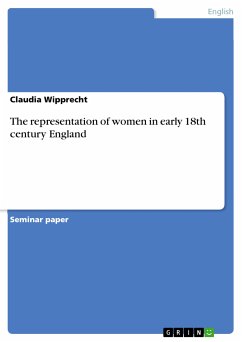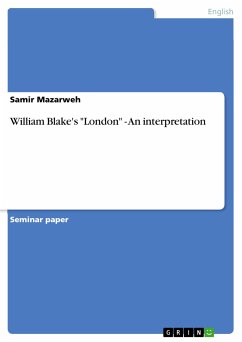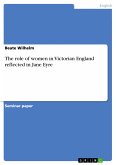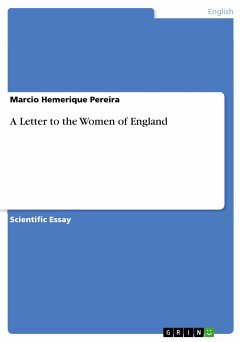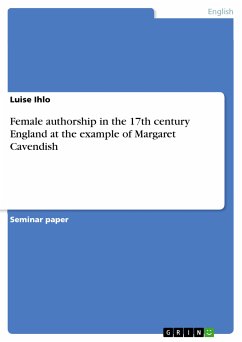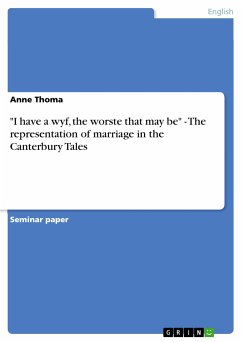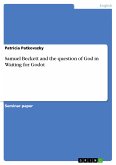Seminar paper from the year 2006 in the subject English Language and Literature Studies - Literature, grade: 1,3, University of Erfurt (Philosophische Fakultät), course: The Rise of English Journalism in the Early 18th Century, language: English, abstract: I) The first half of the 18th century The important essay by John Locke Essay concerning human understanding (1690) made an exceptionally high impact in the 18th century. His rejection of Descartes’ ‘innate ideas’ constituted the basis for the discussion about abilities and rights of women in the 18th century. A.R. Humphreys noted: “Throughout the century a skirmish went on between conservatives who argued for the grand principle of subordination and progressives, who, guided by the clear light of reason, contended for woman’s rational and social equality.”1 The married woman was considered to have neither rights nor property due to the fact that with the marriage all her property exchanged automatically to her husband. The ideal of marriage in the 18th century is described by W.L. Blease: “ … the ideal of marriage had been brought to its lowest possible level […] it emphasized the sexual side of the connection, and almost entirely disregarded the spiritual.”2 The average age for marrying rested with 17 years, which was the reason that most young women could not satisfy their positions as mothers. The only profession women could have was that of a wife and mother; as Blease said “A respectable woman was nothing but the potential mother of children.”3. However, there was the problem of a surplus of women. Some women had the possibility to teach children, which was not very high regarded. Most women, however, had only the possibility to prostitute themselves which was a crucial problem of this times (Einhoff, 1980: 35). Terms like ‘the fair sex’, ‘the soft sex’ and ‘the gentle sex’ designated the relationship of the sexes; the weak and tender woman needs to be protected by the strong man, which disguised the reality of absolute subordination of most women. It is also remarkable that there were only a few legal divorces which can be interpreted as a sign for the tacit sanction of adultery, the general standing of the value of marriage and the hopelessness of a divorced woman without rights and financial resources.

